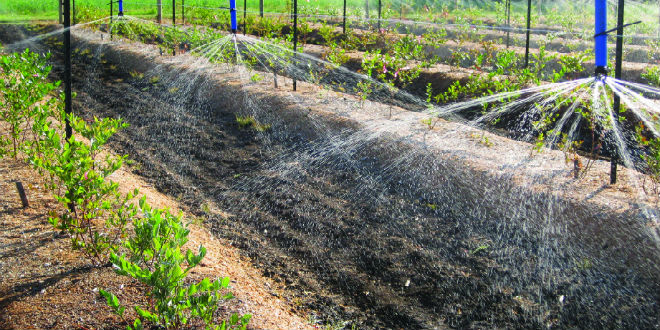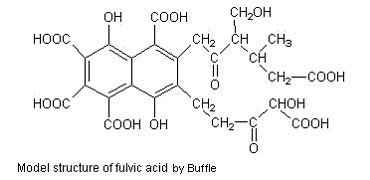Humic acid is a natural macromolecular organic polymer. Which is mainly divided into fulvic acid, brown humic acid, black humic acid and so on. It has become a green motive material for the sustainable development of the national economy because of its physical and chemical properties and biological activities.Such as chelation, adsorption, infiltration, bonding, exchange, dilution, slow release, stability, surface activity and so on. So what’s the humic acid benefits in soil?
In foreign countries, humic acid has been developed and applied in more than 70 fields of industry  and agriculture. China is only involved in 32 professional types, and the market application potential is great.
and agriculture. China is only involved in 32 professional types, and the market application potential is great.
In recent years, humic acid fertilizers have developed rapidly. But due to the disunity of standards and uneven products in the market,it’s inconvenient for farmers to choose and use them.
What ‘s the humic acid benefits in soil?
Humic acid can improve soil structure, especially soil consolidation caused by long-term single use of chemical fertilizer.
For barren and sandy soils, humic acid can increase the cation exchange capacity of soil and convert fixed metal cations such as (K, Mg). That’s beneficial to plants, into a form that can be absorbed, thus promoting the absorption of nutrient elements by plants.
Humic acid can interact with beneficial bacteria in the soil and turn the soil into a soft structure. Meanwhile, it can also promote the absorption of nutrient elements by plants.
Neutralize the acidity and alkalinity of the soil and reconcile the PH of the soil In alkaline soil. Many basic elements and trace elements exist in the form that can not be absorbed by plants.
Humic acid can play a buffer role in PH. Convert these basic nutrient elements and trace elements into forms that can be absorbed by plants.

In acidic soil, it can react with heavy metals to reduce heavy metal pollution. At the same time, phosphorus fixed by Ca3 Fe3 Al3 in soil can also be released and absorbed by plants.
In soils with high salt content, it can be replaced by salt exchange capacity and absorbed by crops, promote the growth of plants. Enhance the cold resistance, drought resistance and waterlogging resistance of crops, and increase the yield.
The effect of humic acid on the soil, combined with the ability to promote photosynthesis. Promoting the division of cell wall,promoting the increase of sugar, increasing the yield by nearly 30%.
The humic acid react with the harmful nitrate in the soil to prevent it entering the underground drinking water and protecting the water resources. Increase the persistence of pesticides and herbicides ,and reduce the pesticide residue.So the humic acid is in the food chain, making the soil more fertile, making the food safer.






